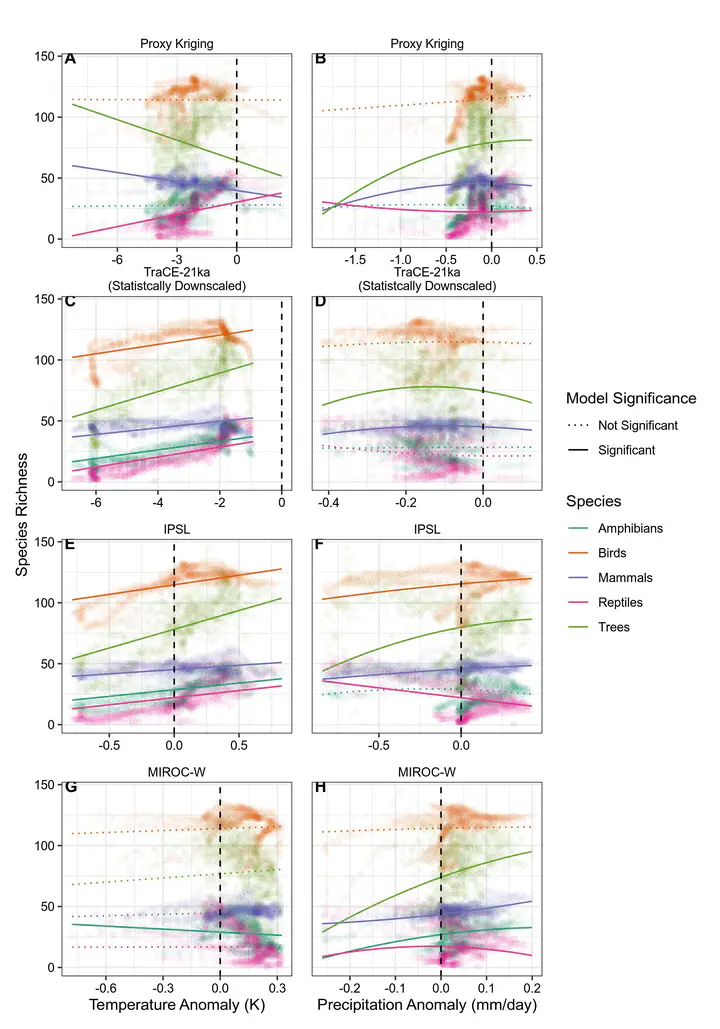Legacies of millennial-scale climate oscillations in contemporary biodiversity in eastern North America

Abstract
The Atlantic meridional overturning circulation (AMOC) has caused significant climate changes over the past 90,000 years. Prior work has hypothesized that these millennial-scale climate variations effected past and contemporary biodiversity, but the effects are understudied. Moreover, few biogeographic models have accounted for uncertainties in palaeoclimatic simulations of millennial-scale variability. We examine whether refuges from millennial-scale climate oscillations have left detectable legacies in the patterns of contemporary species richness in eastern North America. We analyze 13 palaeoclimate estimates from climate simulations and proxy-based reconstructions as predictors for contemporary richness for amphibians, passerine birds, mammals, reptiles, and trees. Results suggest that past climate changes due to AMOC variations have left weak but detectable imprints on the contemporary richness of mammals and trees. High temperature stability, precipitation increase, and an apparent climate fulcrum in the southeastern United States across millennial-scale climate oscillations aligns with high biodiversity in the region. These findings support the hypothesis that the southeastern United States may have acted as a biodiversity refuge. However, for some taxa, the strength and direction of palaeoclimate-richness relationships varies among different palaeoclimate estimates, pointing to the importance of palaeoclimatic ensembles and the need for caution when basing biogeographic interpretations on individual palaeoclimate simulations.